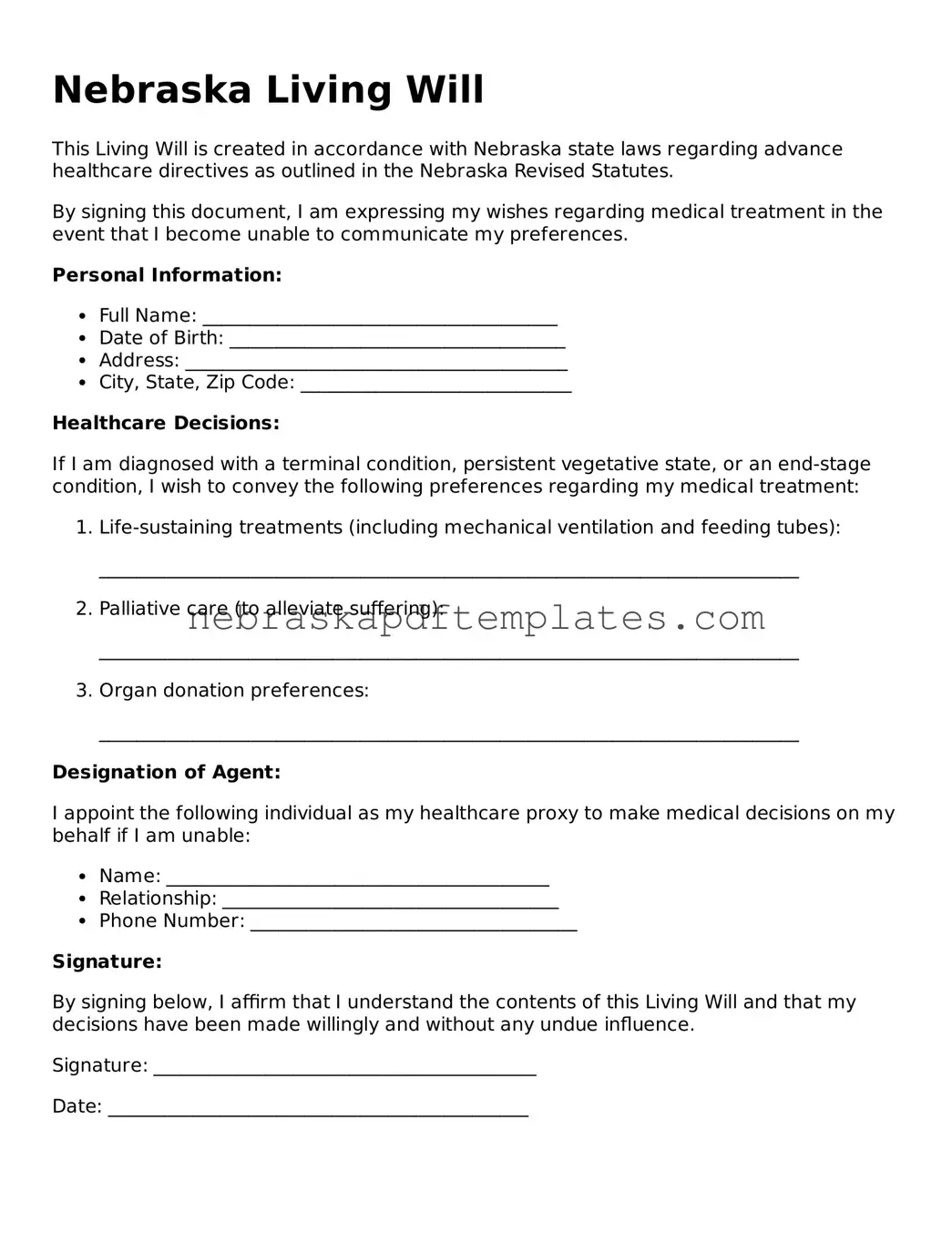What is a Nebraska Living Will?
A Nebraska Living Will is a legal document that allows individuals to outline their preferences for medical treatment in the event they become unable to communicate their wishes. It specifies the types of medical interventions one would or would not want if they are facing a terminal condition or are in a persistent vegetative state.
Who should consider creating a Living Will?
Anyone over the age of 19 should consider creating a Living Will. This document is especially important for individuals with chronic illnesses, those undergoing major surgeries, or anyone who wants to ensure their medical treatment preferences are known and respected.
How do I create a Living Will in Nebraska?
To create a Living Will in Nebraska, follow these steps:
-
Download the Nebraska Living Will form from a reliable source or obtain a copy from a healthcare provider.
-
Carefully read the document and fill in your preferences regarding medical treatment.
-
Sign the form in the presence of two witnesses or a notary public to make it legally binding.
Do I need a lawyer to create a Living Will?
No, you do not need a lawyer to create a Living Will in Nebraska. However, consulting a lawyer can be beneficial if you have specific questions or complex medical situations. They can help ensure your document accurately reflects your wishes.
Can I change or revoke my Living Will?
Yes, you can change or revoke your Living Will at any time. To revoke it, simply destroy the original document and inform your healthcare providers and family members of your decision. If you wish to create a new Living Will, make sure to follow the proper procedures and notify relevant parties of the change.
What happens if I don’t have a Living Will?
If you do not have a Living Will, medical decisions may be made by your family members or healthcare providers based on what they believe is in your best interest. This can lead to disagreements and may not reflect your personal wishes regarding treatment.
Is my Living Will valid in other states?
A Nebraska Living Will is generally valid in other states, but laws can vary. If you travel frequently or have residences in multiple states, it’s a good idea to check the specific requirements of each state or create a new Living Will that complies with local laws.
Where should I keep my Living Will?
Keep your Living Will in a safe but accessible location. Consider giving copies to trusted family members, your healthcare provider, and your attorney. Make sure that those involved in your care know where to find it when needed.

